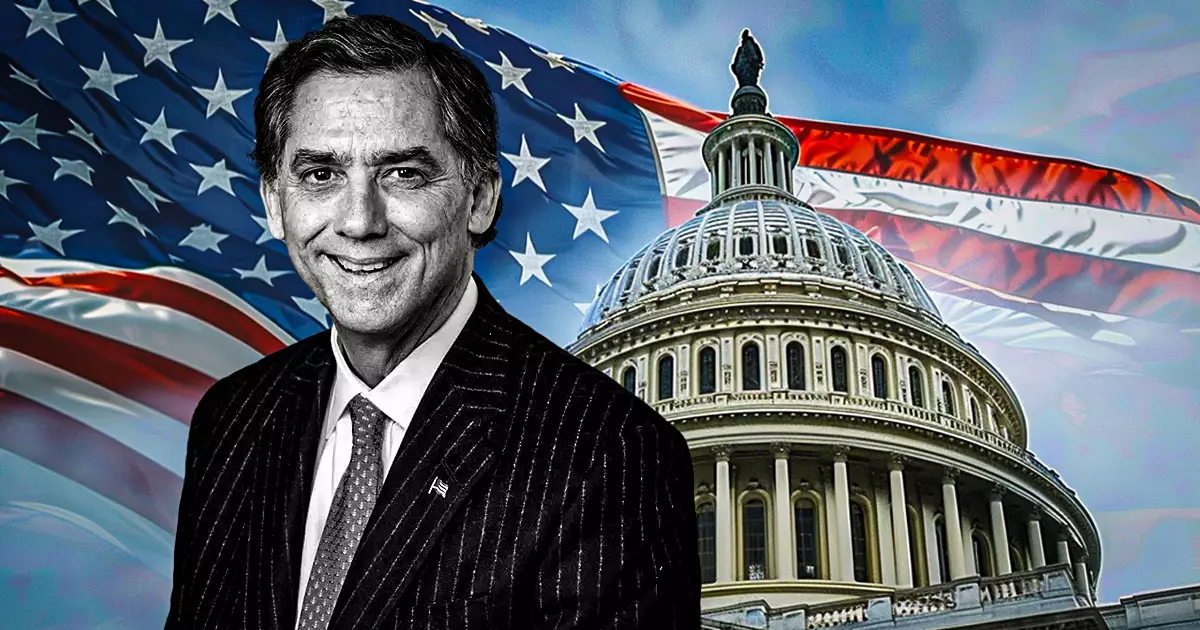Congressman French Hill has taken the helm of the House Financial Services Committee with a clear mission: to demystify the complex regulatory landscape surrounding cryptocurrencies. In a recent interview, Hill articulated a vision that emphasizes the urgent need for clarity and structure within the burgeoning digital asset market. As it stands, the U.S. crypto sector, valued at a staggering $1 trillion, is mired in regulatory confusion, leaving both entrepreneurs and investors in a precarious position. Hill’s proposal seeks not only to guide potential market growth but also to create a more conducive environment for innovation.
The regulatory framework for cryptocurrencies in the United States has historically been fragmented, with various agencies issuing differing interpretations of how digital assets should be treated. Hill’s agenda highlights the importance of developing a coherent market structure—a crucial step that could alleviate the apprehensions of businesses and investors alike. As he stated, “We need a market structure for crypto… That is a top priority for us.” Such clarity could enable startups to thrive and allow established firms to make long-term plans without the looming threat of sudden regulatory shifts.
One of Hill’s primary objectives is to simplify market oversight, an initiative that could involve reducing the restrictions on banking and financial institutions, making it easier for these entities to engage with digital assets. This approach could foster collaborations between traditional banks and crypto companies, generating new opportunities for innovation and growth.
An essential component of Hill’s agenda involves revitalizing public market activity by incentivizing companies to pursue initial public offerings (IPOs). In a landscape where digital assets have gained substantial traction, helping more firms transition to the public sphere could infuse capital into the economy and enhance overall market stability. The potential for a successful IPO in the crypto sector not only serves as a valuable financing option but can also build trust among investors, as publicly traded companies are bound by strict reporting and regulatory compliance.
Hill’s plans also build on the framework established by the Financial Innovation and Technology for the 21st Century Act (FIT 21), a legislative effort introduced by his predecessor. Though FIT 21 has faced challenges in the Senate—largely due to debates over its funding and implications for market stability—Hill remains committed to pushing the bill forward. His focus on this initiative underscores the necessity of establishing a solid regulatory grounding for the crypto marketplace.
Interestingly, Hill’s agenda intersects with a broader national conversation about the feasibility of a national Bitcoin reserve. While some legislators advocate for this initiative, Hill has struck a cautious tone, expressing concerns about inherent market volatility and the complexities of federal oversight. He acknowledged the need for deliberation, questioning the overall value such a reserve would provide to the U.S. Treasury.
As Congressman Hill gears up to lead the committee, it’s clear that his strategies regarding cryptocurrency regulation and financial services reform will hold significant sway over America’s economic policies. By aiming for a regulatory framework that balances innovation with consumer protection, he hopes to pave the way for a competitive and robust financial landscape in an increasingly digital world.



















Leave a Reply